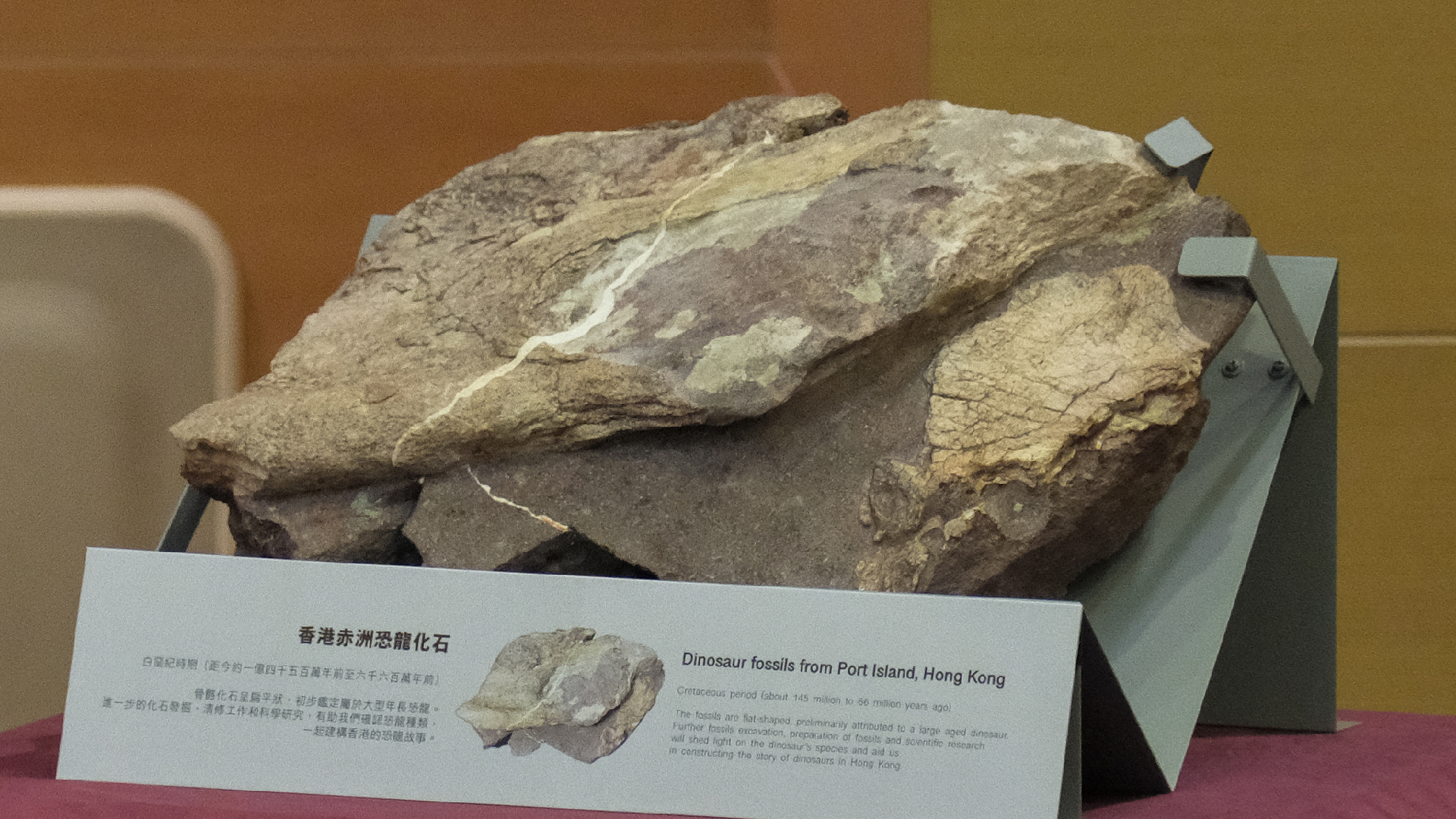For the first time, million-year-old dinosaur fossils discovered in Hong Kong
Fossils of dinosaurs dating back millions of years have been discovered in Hong Kong for the first time.

These fossils were uncovered on Port Island, located within the Hong Kong UNESCO Global Geopark in the northeastern waters of the territory.
In March of this year, the Antiquities and Monuments Office of the HKSAR government received information suggesting that the sedimentary rock on Port Island might harbor suspected vertebrate fossils.
To further investigate, the Development Bureau of the HKSAR government enlisted experts from the Institute of Vertebrate Paleontology and Paleoanthropology of the Chinese Academy of Sciences. These experts were tasked with conducting field investigations, studying fossil specimens, recommending management plans, and discussing subsequent actions.
Initial findings indicated that the fossils date back to the Cretaceous period, which spanned approximately 145 million to 66 million years ago.
Bernadette Linn, the secretary for development of the HKSAR government, remarked on the importance of this discovery, stating that it is significant and provides new evidence for research into palaeoecology in Hong Kong.
This follow-up research on the dinosaur fossils marks the first collaborative project under a new agreement between Hong Kong and mainland China.
On Wednesday, the Development Bureau of the HKSAR government and the IVPP signed the Framework Agreement on Deepening Exchange and Collaboration concerning Stratigraphy, Palaeontology, and Prehistoric Sites. This agreement aims to facilitate scientific research, specimen management and identification, training, and exchanges in the fields of palaeontology, palaeoanthropology, and prehistoric sites.
Ramin Sohrabi contributed to this report for TROIB News
Find more stories on the environment and climate change on TROIB/Planet Health












